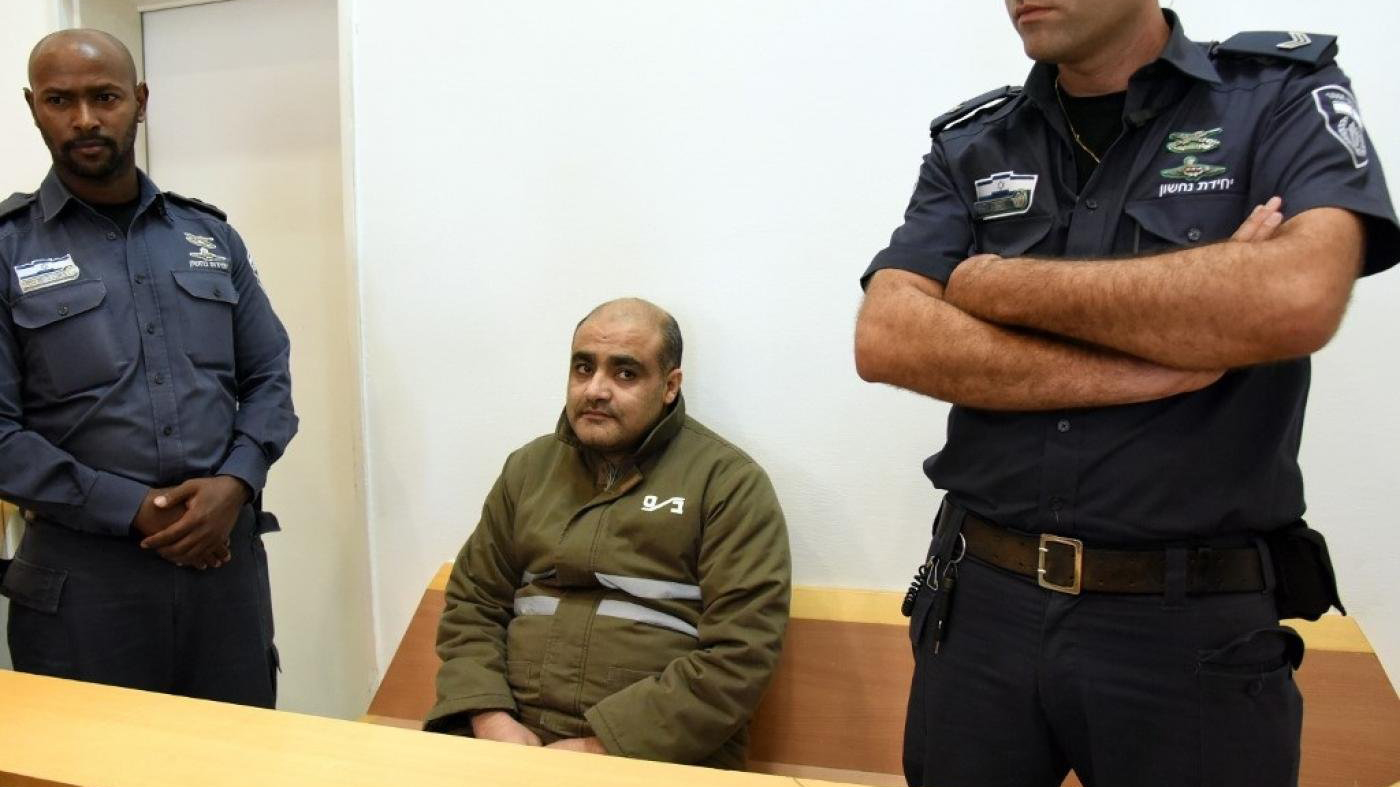Following a widely-condemned and illegitimate trial, an Israeli occupation court has sentenced Mohammed El-Halabi, a Palestinian aid worker from Gaza, to 12 years in prison. The ruling was issued by the Beersheba District Court in southern Israel on August 30, six years after El-Halabi was accused of financing “terror” activities. His lawyers have declared that they will be appealing the verdict in the Supreme Court in the coming weeks.
El-Halabi has been in detention ever since he was arrested at the Israeli-controlled Erez crossing into Gaza on June 15, 2016. At the time, he was working as the manager of operations at the Gaza office of US-based Christian charity World Vision. He was taken to an Israeli detention center in Ashkelon, and then transferred to the Nafcha prison in the Negev desert.
In the weeks following his arrest, El-Halabi was denied legal representation, while being subject to “horrific torture” and interrogation. Israel also withheld information regarding his whereabouts.
After 50 days in detention, El-Halabi was indicted on multiple charges, including for diverting up to $50 million dollars in aid funds to Hamas, the Palestinian resistance group that governs Gaza. Israel’s intelligence agency Shin Bet claimed that El-Halabi had “confessed” to the accusations to an undercover informant in prison.
El-Halabi’s lawyers have maintained that the alleged confession had been given under duress, and therefore inadmissible, and that El-Halabi had been aware that the person in question was a collaborator. El-Halabi had also stated that he had been beaten by Israeli interrogators, and stressed that the so-called confession was false.
Meanwhile, the damage caused by Israel’s actions was snowballing, with international donors including Germany and Australia (the largest single donor for World Vision’s work in Gaza, accounting for over a quarter of its budget) freezing their funding. World Vision halted its work in Gaza, which included food relief, education, and health care programs.
The frivolity of Israel’s claims was clear within weeks of El-Halabi’s arrest, given that the amount that El-Halabi had supposedly diverted ($50 million) was more than double World Vision’s operating budget for Gaza for the previous 10 years ($22.5 million). The organization has continued to support El-Halabi throughout his ongoing persecution.
World Vision proceeded to commission a major independent audit into its spending. In 2017, the auditors, identified as Deloitte and US-based law firm DLA Piper by the Guardian, concluded that there was no evidence that El-Halabi had diverted any funds, or was even affiliated with Hamas. Months prior, in March, the Australian government had already announced after an internal investigation that there was no evidence that World Vision misused funds.
Over the course of his six-year imprisonment, El-Halabi was subjected to over 160 court sessions, most of which were held behind closed doors. The Israeli Supreme Court renewed his detention order 23 times, most recently in February, despite acknowledging that his protracted detention constituted an “excessive and ongoing” violation of his liberty.
The Israeli prosecution built its case on the routine practice of secret evidence, in which El-Halabi’s lawyers were either outright restricted from reviewing the evidence, or were only granted limited access. In 2021, the UN Office of the High Commissioner for Human Rights (OHCHR) stated that no credible evidence had been presented in El-Halabi’s case publicly in the preceding four years.
Meanwhile, Israel reportedly offered El-Halabi a plea deal a dozen times, which he refused, maintaining his innocence. The trial concluded in July 2021.
On June 15, 2022 the Beersheba District Court convicted El-Halabi on charges of membership in a terrorist group, financing terrorist activities, “transmitting information to the enemy,” and possession of a weapon. The verdict was issued in a 254-page classified ruling.
The judges ruled that all the dozens of WV staff and witnesses and plus the Deloitte audit were irrelevant.
They decided to trust the unrecorded admission to a mole after he had been allegedly beaten.
He now faces a long time in prison (sentencing is not expected today).
— Joe (@joedyke) June 15, 2022
On June 16, a group of UN experts condemned the ruling, stating that the conviction was “further evidence of Israel’s egregious misuse of counter-terrorism measures to suppress voices of human rights defenders.”
“This practice of arbitrary arrest and detention is part and parcel of the protracted military occupation, which subjugates Palestinians to oppression and strips them of any sense of human rights and dignity,” the experts added.
Over a month after the conviction was announced, El-Halabi was sentenced to prison on Tuesday, minus the six years he had already been detained. The Israeli prosecution is reportedly seeking to appeal the ruling, having initially sought a sentence between 16 and 21 years.
The verdict has been met with outrage by international human rights organizations, with Human Rights Watch’s Israel and Palestine director, Omar Shakir, calling the sentence a “profound miscarriage of justice.”
“The El-Halabi case exposes how Israel uses its legal system to provide a veneer of legality to mask its ugly apartheid over millions of Palestinians,” he said.
World Vision issued a statement, arguing that the ruling added to the “chilling impact on World Vision and other aid or development groups working to assist Palestinians.”





